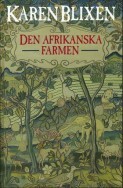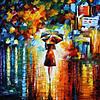You need to sign in or sign up before continuing.
Take a photo of a barcode or cover
The author says a lot of really horrible things in a really beautiful way. This book was a chore to get through and made me angry many times. I'm not sure why I finished it, to be honest.
This was an interesting read about the author's time living in Africa. The beginning was a little slow but it was a good introduction for the rest of the book. I only know English and there are some sayings that are in a foreign language and there is no translation. This took away from the book a little because it ruined the flow while I tried to figure out what these said.
I had such difficulty deciding on a rating for this. The difficulty lay in the fact that the writing itself is beautiful and evocative, really exceptionally so... but I cannot make myself like the author. I know, different times, blah de blah blah, but there does seem to be an enormous lack of self-awareness here. For someone who goes on and on about the wonder and loveliness of the African environment, she seems to take great pleasure in shooting half the living things she comes across. (When Dinesen/Blixen comments that when she first came to Africa it was her ambition to kill one of every animal I wanted to reach through the pages and slap her.) Not to mention all the groaning about how terrible it is for her to leave her land, with little recognition that the Africans who also have to leave (despite having been there generations longer) might be feeling just a little worse about it. It's hard not to read this and side-eye a lot of the old colonialist attitudes that come shining through.
In the end I plumped for three stars instead of four. Honestly, the writing itself deserves four stars - for all Blixen's failings as a person she's an incredible writer - but one too many scenes in which she happily kills things also killed my enjoyment, or at least materially limited it. Worth reading for the gorgeous prose, but it is a product of its time and no mistake.
In the end I plumped for three stars instead of four. Honestly, the writing itself deserves four stars - for all Blixen's failings as a person she's an incredible writer - but one too many scenes in which she happily kills things also killed my enjoyment, or at least materially limited it. Worth reading for the gorgeous prose, but it is a product of its time and no mistake.
adventurous
emotional
inspiring
reflective
sad
slow-paced
Lovely writing. I was fascinated by the author's views on Africans and Africa given the time period. Interesting stories, which weren't really connected, so I found it easy to put down and pick up again later.
The book meanders. Dinesen moves from memory to memory, going forward and backward in time. She truly describes a love for Africa. However, missing from the book is much of her ACTUAL life, i.e. relationships. Towards the close, her emotions are more apparent, but this expression lacked throughout most of the book. I got the impression that she was some sort of naturalistic observer, disconnected at times.
I didn't mind that the narrative wasn't straightforward. Don't assume there will be a plot of any kind. I could certainly glean the hard-working nature of Dinesen - made me think of the main characters of Willa Cather's pioneer novels, of the Scandinavian farm women who were fiercely independent. Yet, because of the lack of structure, there were times when I felt myself drifting away, waiting for the next chapter to start. In contrast, there were times when I was engrossed.
The movie certainly took great liberty from the memoirs. Things in the book that were passed over in a paragraph or two had much longer scenes. Additionally Denys was barely mentioned in the memoirs.
Certainly she has the air of a rich, European looking down condescendingly at times to the African people. A product of the times, really. I think reading this book along with another book about Africa in the same time period would be a great contrast of narrator. As much as you may think Dinesen is speaking down all the time with a shake of her head, she is more attached to the African people and way of life than to her own Danes. Additionally it didn't seem she was taking advantage of anyone.
The short biography at the beginning was more interesting than the rest of the book, sadly. Dinesen kept out her private life, which was interesting and would have added a lot to the book.
I didn't mind that the narrative wasn't straightforward. Don't assume there will be a plot of any kind. I could certainly glean the hard-working nature of Dinesen - made me think of the main characters of Willa Cather's pioneer novels, of the Scandinavian farm women who were fiercely independent. Yet, because of the lack of structure, there were times when I felt myself drifting away, waiting for the next chapter to start. In contrast, there were times when I was engrossed.
The movie certainly took great liberty from the memoirs. Things in the book that were passed over in a paragraph or two had much longer scenes. Additionally Denys was barely mentioned in the memoirs.
Certainly she has the air of a rich, European looking down condescendingly at times to the African people. A product of the times, really. I think reading this book along with another book about Africa in the same time period would be a great contrast of narrator. As much as you may think Dinesen is speaking down all the time with a shake of her head, she is more attached to the African people and way of life than to her own Danes. Additionally it didn't seem she was taking advantage of anyone.
The short biography at the beginning was more interesting than the rest of the book, sadly. Dinesen kept out her private life, which was interesting and would have added a lot to the book.
Her pain is plain to see. A very moving read. I really wish these memories were mine. I would hate having to leave behind a place that held such importance to me, and so much love.
informative
reflective
slow-paced
Mamma mia la noia.
Portare a termine questo libro è stato estenuante, trecento pagine che mi sono sembrate almeno il doppio: non perchè sia scritto male, tutt'altro, anche perché ho già letto altro della Blixen e so perfettamente che sa scrivere; il problema è che manca qualunque tipo di trama o di struttura, il romanzo consiste unicamente di aneddoti pittoreschi e descrizioni naturali che si susseguono confusamente senza una logica.
Non saprei neanche se definirle memorie a questo punto, perchè i riferimenti alla vera vita dell'autrice sono pochi e si ha la costante sensazione che ometta più di quanto non dica (nessun accenno al divorzio o alla sifilide, mentre Denys Finch-Hatton viene presentato solo come un amico).
L'unico elemento che ha catturato la mia attenzione in questo mare di tedio è stata l'arroganza coloniale di cui è imbevuta la protagonista, tanto più fastidiosa in quanto ammantata di un perbenismo ipocrita.
Peccato, mi avevano parlato tutti bene del film e credevo che leggere il libro sarebbe stato anche meglio, ma mi sbagliavo di grosso.
Agli appassionati di viaggi, di Africa o della natura in generale sicuramente potrebbe piacere, a tutti gli altri consiglio di tenersi alla larga.
Portare a termine questo libro è stato estenuante, trecento pagine che mi sono sembrate almeno il doppio: non perchè sia scritto male, tutt'altro, anche perché ho già letto altro della Blixen e so perfettamente che sa scrivere; il problema è che manca qualunque tipo di trama o di struttura, il romanzo consiste unicamente di aneddoti pittoreschi e descrizioni naturali che si susseguono confusamente senza una logica.
Non saprei neanche se definirle memorie a questo punto, perchè i riferimenti alla vera vita dell'autrice sono pochi e si ha la costante sensazione che ometta più di quanto non dica (nessun accenno al divorzio o alla sifilide, mentre Denys Finch-Hatton viene presentato solo come un amico).
L'unico elemento che ha catturato la mia attenzione in questo mare di tedio è stata l'arroganza coloniale di cui è imbevuta la protagonista, tanto più fastidiosa in quanto ammantata di un perbenismo ipocrita.
Peccato, mi avevano parlato tutti bene del film e credevo che leggere il libro sarebbe stato anche meglio, ma mi sbagliavo di grosso.
Agli appassionati di viaggi, di Africa o della natura in generale sicuramente potrebbe piacere, a tutti gli altri consiglio di tenersi alla larga.
I have reread Beryl Markham (WEST WITH THE NIGHT) and Dineson in the same order I discovered them...Markham then Dineson, and I discovered more about them both. Dineson is the poet...the storyteller. She seems to understand the meaning of her own tales to a degree Markham may not be capable of. Perhaps it is maturity...perhaps it is the veneer of civilization, or a knowledge and appreciation of culture. Markham has the look of a wild colt...beautiful and instinctual. She feels. Dineson observes and reflects.
This audible book was sadly abridged...but the incomparable Julie Harris narrated, so I had to have it.
Both books are vignettes...patches that come together for a multi-textured creation. I was most interested in their differing versions of the man they both loved: Finch-Hatton. Markham shared his adventures, flew with him, was a vibrant companion. Dineson spun stories, listened to music and drank fine wine with him.
Both women romanticize him and his death. Both claim to have been invited to accompany him on that last doomed flight.
Dineson has the power of observation and reflection. Markham has the power of immediacy and vigor and enthusiasm.
It boggles my brain to realize these two shared the same time and place, yet saw it so differently. I'm grateful for them both
This audible book was sadly abridged...but the incomparable Julie Harris narrated, so I had to have it.
Both books are vignettes...patches that come together for a multi-textured creation. I was most interested in their differing versions of the man they both loved: Finch-Hatton. Markham shared his adventures, flew with him, was a vibrant companion. Dineson spun stories, listened to music and drank fine wine with him.
Both women romanticize him and his death. Both claim to have been invited to accompany him on that last doomed flight.
Dineson has the power of observation and reflection. Markham has the power of immediacy and vigor and enthusiasm.
It boggles my brain to realize these two shared the same time and place, yet saw it so differently. I'm grateful for them both
Biographies are an intimate look at how other people live and a view into how alien to ones own.





